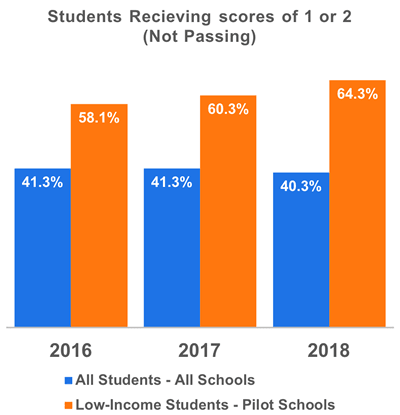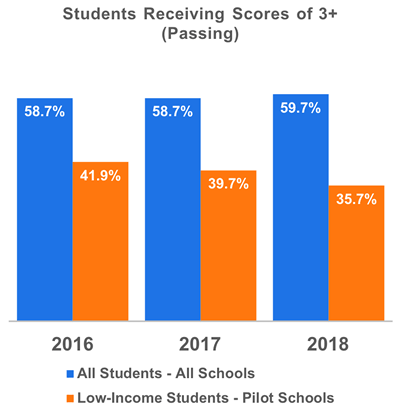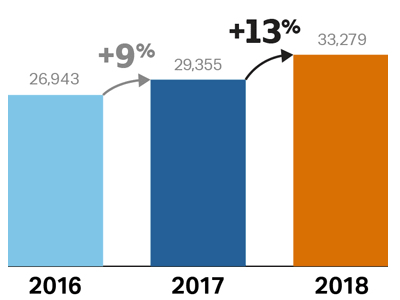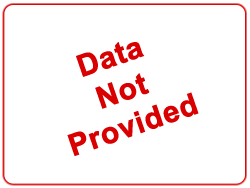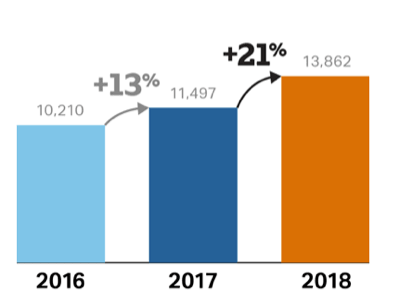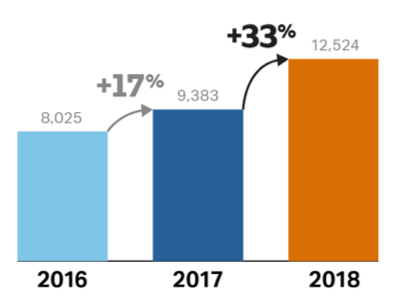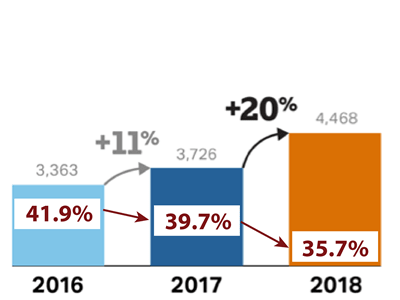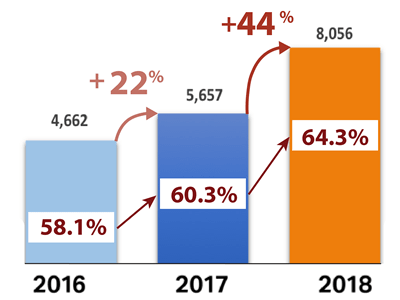In-Depth Analysis of Data from the College Board's Fall AP Exam Ordering Pilot
Spoiler Alert: The Failure-Rate of Low-Income Students Markedly Increases When Requiring Students to Order AP Exams in the Fall
The College Board's published data regarding their 2018 pilot confirms what survey respondents have been saying . . .
a Mandated Fall AP Exam Ordering Deadline is not in the best interest of students.
The College Board (CB) recently published a web page explaining why they are changing to a Fall AP Exam Ordering Deadline, https://apcentral.collegeboard.org/about-ap/news-changes/ap-2019/why-are-we-making-changes, (ATTENTION! when we checked the College Board's site on March 7, 2019 this page has been removed, please find a screen shot of this page taken on Feb 2, 2019 here) for all students at all schools beginning the 2019-2020 school year. The following analysis uses only data provided by the CB. The CB's data is missing some key, known pieces of data: more years, score data for all students, enrollment data, etc., but the analysis is the best that can be done with the data provided.
The following data table has been constructed using the data provided on the CB's page and from data found in the last 3 years of AP Exam Data
| Year | Students Enrolled in AP Classes Pilot Schools |
All Test Takers (Takers/Enrolled) |
All Test Takers Scores of 3+ |
Low-Income Test Takers (Low-Inc. /All ) |
Low-Income Test Takers Scores of 3+ (Low-Inc. 3+/All Low-Inc.) |
Underrep. Minorities Test Takers (Un-Rep/All) |
Underrep. Minorities Test Takers Scores of 3+ |
All Schools All Test Takers Scores of 3+ |
|---|---|---|---|---|---|---|---|---|
| 2016 | ? | 26,943 (?%) | ? (?%) | 8,025 (29.8%) | 3,363 (41.9%) | 10,210 (37.9%) | ? (?%) | 2,835,307 (58.7%) |
| 2017 | ? | 29,355 (?%) | ? (?%) | 9,383 (32.9%) | 3,726 (39.7%) | 11,497 (39.2%) | ? (?%) | 2,990,532 (58.7%) |
| 2018 | 40,000 | 33,279 (83.2%) | ? (?%) | 12,524 (37.6%) | 4,468 (35.7%) | 13,862 (41.6%) | ? (?%) | 3,133,758 (59.7%) |
Comparing Students in the CB's 2018 Pilot to Students Not in the Pilot
How does one evaluate whether or not a Fall AP Exam Order Deadline (schools in the pilot) benefits students?
It seems fitting to compare the achievement of students in the pilot to the achievement of all students at all schools.
In regards to AP Exams, how does one evaluate student achievement?
The AP exams are scored 1-5. A score of 3, 4 or 5 may earn a student college credit or placement into a higher level course for their AP course/exam while a score of 1 or 2 does not earn college credit or advanced placement.
How do the scores of the students in the pilot compare to all the students taking AP exams?
The CB has provided data for schools in the pilot. The score data was provided for "Low-Income Students", but not for any other groups. Comparing the graphs on the right one can ascertain that the pass-rate for Low-Income Students has decreased (failure-rate has increased) from 2016 to 2018 with a greater decrease in pilot year, 2018. In the meantime, the pass-rate for All Students at All Schools has increased during the same time period. In 2018, the failure-rate for Low-Income Students in the Pilot is 1.6 times greater than the failure-rate of All Students at All Schools.
Does the data confirm the College Board's statement: "When students commit to the exam from day one, they invest themselves in their classes, teaming with their teacher and classmates to do the daily work needed to earn a score on the AP Exam that qualifies for college credit and/or placement."
All the test takers in the pilot ordered their AP exams in the fall, much earlier than the pilot schools required students to order their exams in the past. Unfortunately the failure rate for low-income students at pilot schools (the only group the College Board provided score data for) increased by 4.0%, twice the increase in the failure rate as the previous year. The failure rate for all AP students at all schools decreased by 1.0% for the same year. The data indicates that having students commit to the exam earlier does not lead to an increase in students earning scores that qualify them for college credit and/or Elements, but in fact leads to a decline in passing scores.
A Fall Commitment to Taking the Exam Results in Increase in Failures
In the pilot schools, there was an increase 3141 low-income test takers and an increase of 742 low-income test takers scoring a 3 or higher on an AP exam. This means there were 2399 more low-income test takers that failed the exam with a score of 1 or 2. The failure rate for the additional low-income exams is 76.4% (2399/3141). A fall exam ordering deadline does not result in more commitment and success on the exam.
